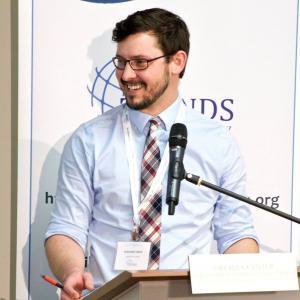 The Orfalea Center for Global & International Studies is pleased to announce their newest publication, “Exploring Emergent Global Thresholds: Towards 2030,” published by Orient Blackswan, and edited by Orfalea Center Distinguished Fellow Richard Falk.
The Orfalea Center for Global & International Studies is pleased to announce their newest publication, “Exploring Emergent Global Thresholds: Towards 2030,” published by Orient Blackswan, and edited by Orfalea Center Distinguished Fellow Richard Falk.
This volume presents multiple viewpoints on the possible future of the planet, as well as on what people in different parts of the world hope for and fear about the near future. Our current era can be described as the beginning of a new, historical phase of the Anthropocene age, where humans are becoming increasingly conscious of the effects of their actions on nature, culture, and human relationships. As the first section shows, this realisation is acquiring greater significance in current development discourse and policymaking, particularly in Asia, Africa, and Latin America. The fate of the human species rests on a sustainable collaboration with nature, as is apparent by the impact of climate change on food, energy, and water.
Arguing in favour of a possible decline in American importance, the second section discusses the encouraging opportunities this could create, as well as the future of both citizenship and national self-determination. The third section focuses on the re-emergence of religion and civilisational identities as significant factors in world affairs, along with an exploration of alternative forms of secularism that could respond to changing cultural expectations. The final section considers the arena of policy and behaviour gender-specific practices and policies; political participation in India; and international peacekeeping operations. With contributions from leading thinkers and academics from around the world, this prescient volume will interest students and scholars of global studies, international relations, culture studies, peace and conflict studies, and political theory.
Volume Contributors Include:





